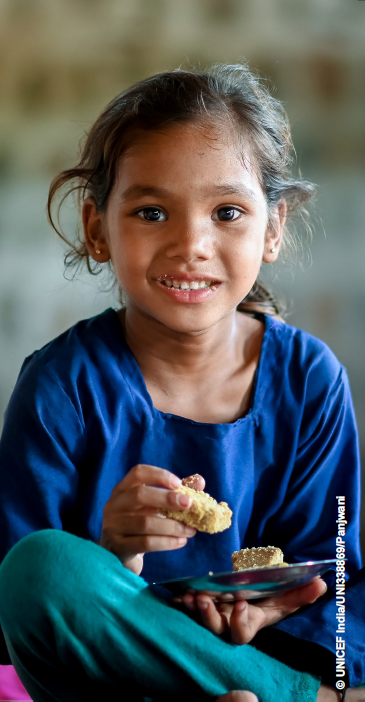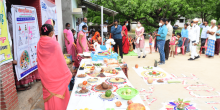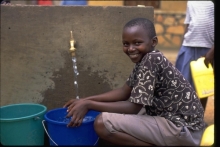UNICEF India Country Office Poshan Power (CNNS and policy highlights)

UNICEF supported the CNNS primarily to contribute to addressing a knowledge gap on micronutrient deficiencies and non-communicable diseases risks in school-aged children and adolescents. The wealth of data and information generated have been, and still are keys for the entire nutrition community to take appropriate measures in terms of policies and programmatic approaches for improved nutrition in India.
Under the leadership of the MoHFW, the CNNS highlights an impressive journey of coordination, stewardship, logistic, interpretation and dissemination of findings to policy makers and programme managers.
With 4 years of hindsight, we can affirm that the CNNS has been and continues to be a rich resource for academia and policy makers, as also evidenced by the continuing new publications of further analyses and interpretation of the CNNS data. It is also anticipated that CNNS will continue to inform policies and strategies in coming years.
As UNICEF India enters into a new programme cycle (2023–2027), UNICEF Nutrition will continue to use CNNS data to actively contribute to evidence generation for policy and programmatic change, especially around its five identified priorities focusing on - foods and diets in early childhood; timely and early detection of growth failure; addressing low-birth weight and wasting in children under six months old; adolescent and maternal nutrition with focus on anaemia and diets and women’s nutrition during pregnancy.



